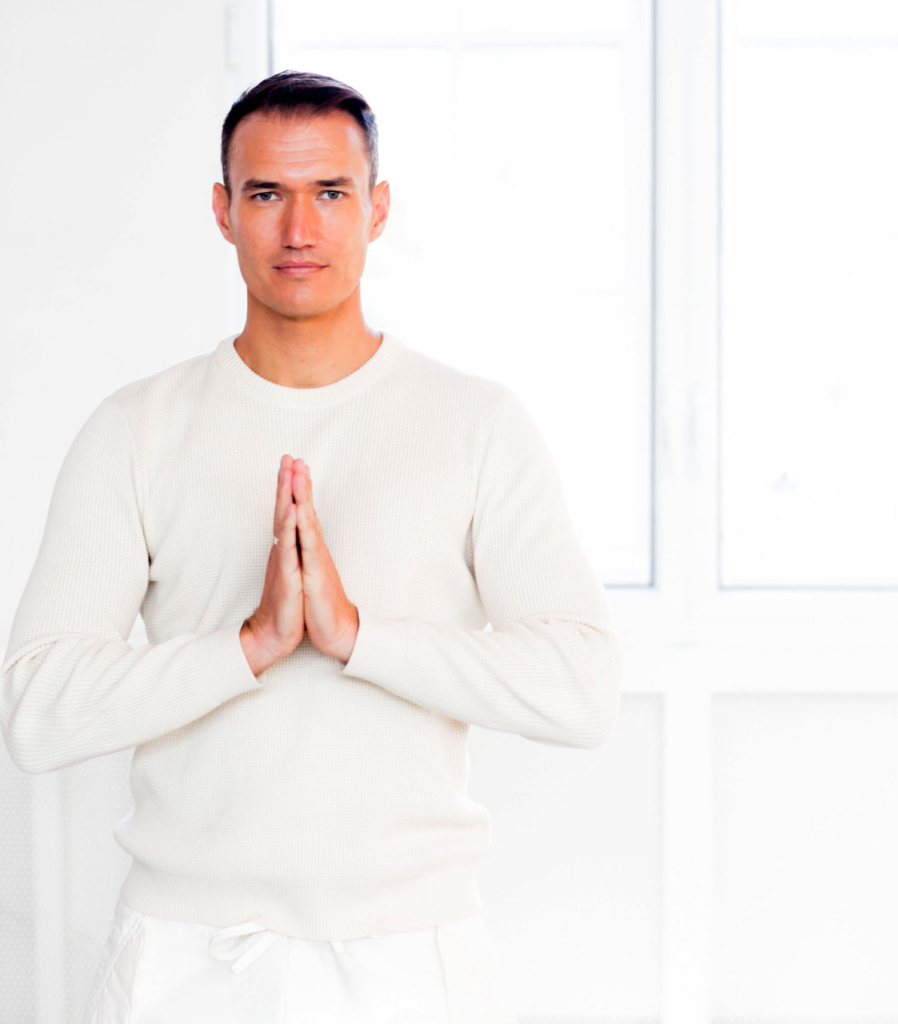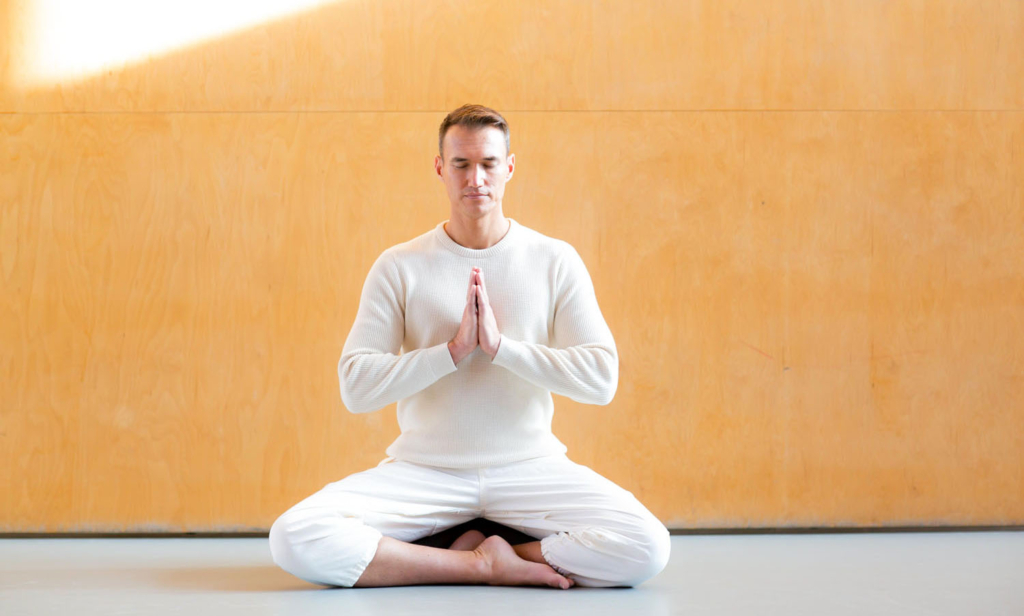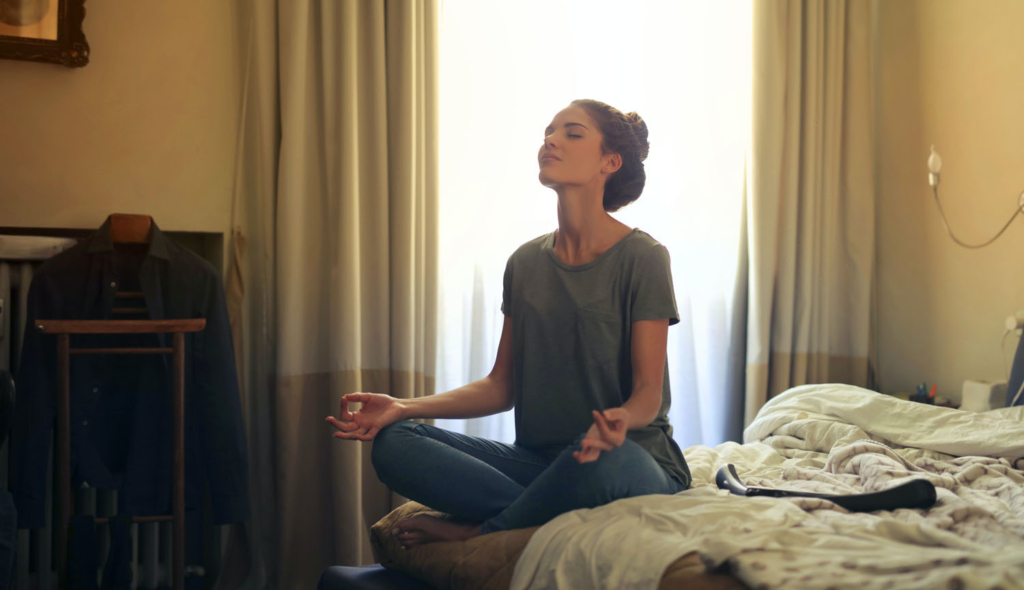When this is over… Is the way most of our sentences start these days. Current self-isolation measures and movement restrictions put a stop to our plans, can make us feel trapped, and have already affected our lives in ways we couldn’t fathom before – even if we are healthy. The situation is tough, for sure, but do we need to feel so despondent?
“I believe we have a unique opportunity as we journey through this crisis together, to remember who we are, what is most important, and why we are here,” says Neil Seligman, mindfulness expert, life coach and author of 100 Mindfulness Meditations: The Ultimate Collection of Daily Inspiring Practices.
“As human beings we naturally fall into patterns of resistance, complaint and negativity when our choices are limited and our lives derailed. It is perhaps useful to remember that, in many wisdom traditions, self-isolation (or retreat) has been practised for millennia as a doorway to deeper self-awareness,” he notes.
Meditation is the simple practice of coming to a stop and exploring your experience with the intention of cultivating presence, awareness and kindness.” – Neil Seligman

This month, while our geographical movements are limited, we invite you to journey into your own mind through the powerful lens of meditation, which can help you gain calm and self-awareness, and develop a vision for your future. “Meditation is the simple practice of coming to a stop and exploring your experience with the intention of cultivating presence, awareness and kindness. Think of it as navigating from doing mode to being mode,” explains Seligman.
If you’ve never tried to just be with yourself, silently and lovingly, in a non-judgmental way – not exactly something we learnt at school – this is an excellent time to try.
STOP: A Short Mindfulness Exercise
Many of us are an emotional roller coaster these days, in the throes of recurring feelings of anxiety, sadness and fear. “If this is you, I recommend increasing your practices of self-care. Meditate to find your centre, keep the body active and the mind creative,” says Seligman. If anxiety becomes intrusive during the day, he recommends a short mindfulness practice called STOP:
– Stop and pause. Ground yourself for a moment. Feel gravity pushing you into your seat or stance.
– Take a series of conscious breaths, feeling the physical sensations of the breath in the body. Bring both palms together, holding your hands in a gentle clasp. Feel the warmth and energy of your aliveness.
– Open. Widen the focus of your awareness by observing, non-judgmentally, what is happening internally and externally. Is there a new opportunity presenting itself?
– Proceed.

Dealing With Negativity
Mindfulness can also help us deal with negative messages. A very concrete issue some of us are experiencing is the loss of a job. How to deal with this kind of life-altering situation?
“One of the most useful lessons from mindfulness is that of the primary and secondary arrows,” says Seligman. “In this case, the primary arrow is losing one’s job: It is a fact, and has happened. The secondary arrows are thoughts like, ‘I won’t be able to pay the mortgage’ – judgments and predictions of future events which have not yet happened. They do not exist as facts, yet we feel the sting of these secondary arrows just as keenly,” he explains.
“Through mindfulness, we learn to differentiate between the primary arrows and the secondary ones – between what is real and what is not. We learn to work with the facts, and navigate towards rational planning and responsiveness rather than anxiety, and imagined catastrophe. In simple terms, mindfulness can help us stay grounded in reality and productive through our challenges.”
The best part is, it’s not difficult – you don’t even need a fancy yoga mat or meditation space. To start, all it takes is a simple chair, or even a cushion on the floor, and literally six and a half minutes of your time.
“The skills built through meditation allow you to map your inner environment. In time, you might feel more comfortable navigating the world of thoughts, emotions and sensations,” Seligman says. “With a commitment to get quiet and listen in the stillness, you may also discover your heart’s deeper desires, the whispers of your own wisdom, and the peculiar experience of unity in all things. Whatever wisdom you do find, will be yours.”
Building A Vision For Your Future
These difficult times might make you question certain aspects of your life. Perhaps you are not where you wanted to be, your work-life balance is non-existent, or you simply realised that you had been dramatising trivial things. Perhaps you have gained clarity on your priorities, but are struggling as to how to go about them. The good thing is, according to Seligman, “this moment in our history provides the perfect time to reflect on the journey of your life, and get clear on your intention for the chapters ahead.”
As a society, we definitely have a bias for action. We are encouraged to constantly act, even when we feel lost or misdirected, instead of stopping and looking for calm and clarity first. This, however, also means that we tend to default to the same automatic reactions and behaviours, risking to commit the same mistakes. And when we do, we judge ourselves, feeding negative narratives which push us into further acting – a vicious circle. Meditation provides an effective way of putting a stop to those mechanisms, and start forming a vision for the future.
First, says Seligman, “we must forgive ourselves. Role-modelling vulnerability through self-forgiveness and appropriate making of amends is a huge gift to the collective.” Holding ourselves to super-human standards is simply unfair. Worse – it doesn’t work. Meaningful, long-lasting change starts from self-love, not from the harsh whips of our inner critic. Meditation makes you aware of the ways you see and think about yourself, helping you recognise and explore your limits.

Once you acknowledge them, you can use your newly gained self-awareness to build a vision for the future. Seligman advises to “actively choose your current situation just as it is. Show up. Build your skill of self-exploration through meditation, and drop in daily to the deeper streams. Listen in the silence. Feel the energies that are moving through you and our world.
“More concretely, you can reflect and journal on questions like: What am I ready to let go of? What am I ready to open to? Who am I becoming? What is my next right step?”
To do so, you will need to be completely honest with yourself – something that can be difficult to do under the constant scrutiny of our judging minds. Here is where self-care and a kind, loving attitude towards ourselves can really foster change.
Ultimately, by looking into ourselves, we will organically increase our overall well-being, improve our lives and, as a consequence, the world around us. “It is time to get quiet, to listen to the deeper streams, and to emerge with clarity of heart,” Seligman concludes. “It is time for humanity to overcome its intelligence and become wise.”














Sorry, the comment form is closed at this time.